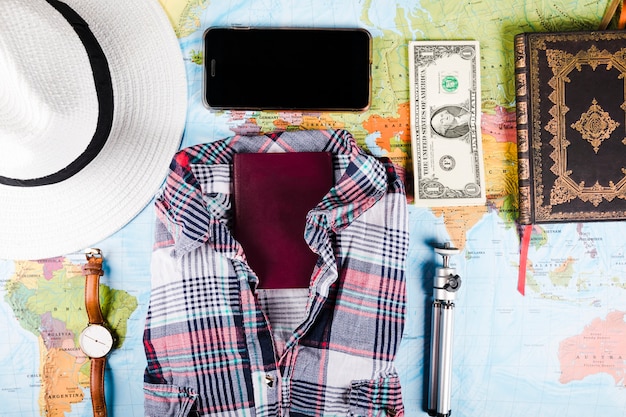Planning a budget for travel
When you decide to travel, one of the important aspects to consider is the financial side of the issue. Planning a budget for your trip will help you avoid financial inconvenience and enjoy your trip to the fullest.
Determine your financial capabilities
Before you start budgeting, you need to determine how much money you are willing to spend on travel. Consider your income, expenses and savings to figure out how much you can budget for your trip.
Determine the cost of travel
The next step is to determine the cost of travel. Consider the costs of airfare, lodging, meals, transportation, attractions and other expenses that may arise during your trip. Use online travel resources and apps to estimate the approximate cost of each item.
Make a detailed spending plan
After determining the cost of your trip, draw up a detailed spending plan. Divide your expenses into categories, such as accommodation, food, transportation and entertainment. Determine how much you are willing to spend on each category and stick to that plan during your trip.
Look for ways to save
Don't forget to look for ways to save money while traveling. Take advantage of discounts and promotions, book in advance, choose budget accommodation and food options. Research local transportation systems and look for free or inexpensive activities and attractions.
Consider unexpected expenses
It is also important to consider unexpected expenses that may arise during your trip. Take a small reserve of money with you in case things don't go as planned. Be prepared for the unexpected and have the ability to cover additional costs.
Managing money while traveling
When you are already traveling, it is important to be able to manage your finances so as not to end up in an unpleasant situation. Here are some tips to help you manage your money while traveling.
Create a daily budget
Create a daily budget for food, entertainment and other expenses. Try to stick to this budget and not spend more than the planned amount. Write down all your expenses so you have an idea of how much you've already spent and how much is left.
Use local currency
When traveling to another country, try to use the local currency. Exchange money in advance or withdraw cash from ATMs to avoid fees and currency exchange hassles.
Be careful with credit cards
If you plan to use credit cards while traveling, be careful. Make sure you know the terms of use of the card, the features of foreign payments and possible fees. Use credit cards sparingly and don't spend more than you can afford.
Look for free or inexpensive entertainment
Don't forget to look for free or inexpensive activities and attractions. Many cities offer free tours, museums with free entry, or discounts for tourists. Explore local options and choose budget options.
Be prepared for emergencies
Finally, be prepared for emergencies. Carry copies of important documents such as your passport and insurance. Research local emergency contacts in advance and have enough money with you in case of emergency.
Managing money while traveling requires planning, vigilance, and preparedness for the unexpected. Follow these tips to make your trip financially secure and enjoyable.

